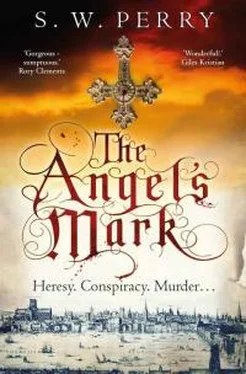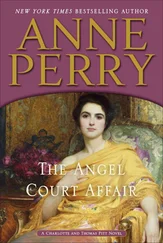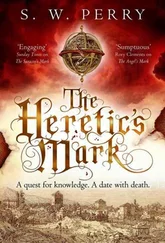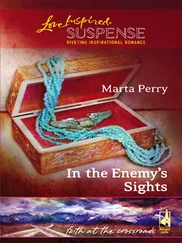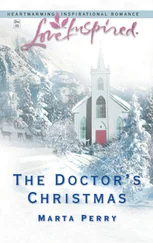Keeping up a sweaty trot in the heat, Nicholas passes the Grass church herb-market and heads down Fish Street Hill, towards the College Guildhall. He squirms with embarrassment when the clerks there bow extravagantly. He’s still finds such deference uncomfortable. In a side-chamber he takes the gown from his bag and, like a guilty secret, wraps it around his body. He enters the dissection room by one door, just as Sir Fulke Vaesy comes in by the other.
He’s made it, with barely moments to spare.
Edging in beside his friend Simon Cowper, Nicholas expects to find the subject of today’s lecture is one of the four adult felons fresh from the gallows that the College is licensed to dissect each year, just as Eleanor had indicated. Only now does he see the tiny figure lying on the linen sheet, surrounded by the barbersurgeon’s instruments.
And Simon Cowper, knowing that Nicholas is an expectant father, cannot bring himself to look his friend in the eye.

Sir Fulke reminds Nicholas of a Roman proconsul preparing to inspect hostages from a conquered tribe. Resplendent in his fellow’s gown with its fur trim, a pearl-encrusted silk cap upon his head, he’s a large man with a fabled appetite for sack, goose and venison. He rises from his official chair and towers over the tiny white figure on the table. But Vaesy has no intention of getting his hands bloody today. It is not for the holder of the Lumleian chair of anatomy to behave like a common butcher jointing a carcass in the parish shambles. The actual cutting of flesh will be done by Master Dunnich, the cheery little bald fellow from the Worshipful Company of Barber-Surgeons.
‘A healthy womb is like the fertile soil in Eden’s blessed garden,’ Vaesy begins, to the biblical accompaniment of summer thunder, much closer now. ‘It is the wholesome furrow in which the seed of Adam may take root–’
Is he delivering a lecture or a sermon? Sometimes Nicholas finds it hard to tell the difference. Through the now un-shuttered windows comes the smell of the street: fish stalls and fresh horse-dung. On each sill rest the chins of passers-by, craning their necks to peer in and gawp. The heat has made this lecture less private than Nicholas imagined.
‘However, this infant, found by the watermen in mid-river just yesterday, is the inevitable issue of disease, physical and spiritual. The child has clearly been born’ – the great anatomist pauses for effect – ‘monstrous!’
The beams of the Guildhall roof seem almost to flinch. Nicholas has a sudden protective urge to wrap the naked child in the linen sheet and tell Vaesy to stop frightening him.
By ‘monstrous’, Vaesy means crippled. The description seems overly brutal to Nicholas, who tries hard to study the child dispassionately. He notes how the withered legs arch inwards below the knees. How the yellowing toes entwine like stunted vines. Clearly he could not have walked into the river by himself. Did he crawl in whilst playing on the bank? Perhaps he fell off one of the wherries or tilt-boats that ply their trade on the water. Or maybe he was thrown in, like an unwanted sickly dog. Whatever the truth, something about the little body strikes Nicholas as odd. Most corpses fished from the river, he knows, are found floating face-down, weighted by the mass of the head. The blood should pool in the cheeks and the forehead. But this boy’s face is waxy white. Maybe it’s because he hasn’t been in the water long, he thinks, noting the absence of bite-marks from pike or water rat.
Is that a small tear on one side of the throat? And there’s a second, deeper wound – low down on the calf of the right leg, like a cross cut into old cheese. A dreadful image enters Nicholas’s mind: the infant being hauled out of the water on the end of a boathook.
‘The causes of deformity such as we see here, gentlemen, are familiar enough to us, are they not?’ says Vaesy, breaking into his thoughts. ‘Perhaps one of you would be so good as to list them? You, sirrah–’
Instantly the eyes of every physician in the room drop to the laces of their boots, to the condition of their hose, in Nicholas’s case to the scars of boyhood harvesting etched into his fingers, to anything but Vaesy’s awful stare. They know the great anatomist will expect at least ten minutes’ dissertation on the subject, all in faultless Latin.
‘Mr Cowper, is it not?’
Of all the victims Vaesy could have chosen, poor Simon Cowper is the easiest: forever muddling his Galen with his Vesalius; ineptly transposing his astrological houses when drawing up a prognosis; when letting blood, more likely to cut himself than the patient. He stands now in the full glare of Vaesy’s attention like a man condemned. Nicholas’s heart weeps for him.
‘The first , according to the Frenchman, Paré,’ Cowper begins nervously, wisely choosing a standard text for safety, ‘is too great a quantity of seed in the father–’
A snigger from amongst the young physicians. Vaesy kills it with a look of thunder. But it’s too late for Simon Cowper; his delicate fingers begin to drum nervously against his thighs. ‘S-s-s-secondly: the mother having sat too long upon a stool… with her legs crossed… or… having her belly bound too tight… or by the narrowness of the womb.’
For what seems like an age, Vaesy torments the poor man by doing nothing but arching one bushy eyebrow. When Cowper exhausts his slim fund of knowledge, the great anatomist calls him a fuddle-cap and reminds him of his own favourite medical catch-all. ‘The wrath of God, man! The wrath of God!’ To Vaesy, sickness is mostly explained by divine displeasure.
Cowper sits down. He looks ready to weep. Nicholas wonders how wrathful God has to be to allow a crippled child to end up on Vaesy’s dissection table.
Two attendants step forward. One removes the starched Flanders linen, the other the corpse. Now Nicholas can see that the table it covered is little more than a butcher’s block with a drain drilled through it, a wooden bucket set beneath the hole. In place of the linen is set a sheet of waxed sailcloth, a vent stitched into the centre. From the stains visible on it, it’s been employed in this role before. The dead child is set down again, like an offering upon an altar.
‘The first incision into the thorax, Master Dunnich, if you’d be so kind,’ orders Vaesy to the little bald-headed barber-surgeon.
Immediately the stench of putrefaction fills the air like an old familiar sin. Nicholas knows it well. Even now, it never fails to turn his stomach. At once he’s back in the Low Countries, his first post after leaving Cambridge.
‘Isn’t there enough sickness for you here in Suffolk?’ Eleanor had asked him when he’d told her he was off to Holland to enlist as a physician in the army of the Prince of Orange, thus postponing their marriage.
‘The Spanish are butchering faithful Protestants in their own homes.’
‘Yes, in Holland . Besides, you’re not a soldier, you’re a physician.’
‘I can do some good. It’s why I trained. I fought hard for my doctorate. I won’t waste it prescribing cures for indigestion.’
‘But, Nicholas, it’s dangerous. The crossing alone–’
‘No more dangerous than Ipswich on market day. I’ll be back in six months.’
She had pummelled his arm in frustration, and the knowledge that she was refusing to weep until he’d gone only compounded his guilt.
In the course of that summer campaign Nicholas had witnessed things no man with a soul should ever have to see. Things he will never tell Eleanor about. Sometimes he still dreams of the babe he’d found on a dung heap, tossed there on the tines of a pitchfork for sport by the men of Spain’s Popish army; and the starved corpses of children after the lifting of a siege. When the smell of roasting meat reaches him, he remembers the remains of women and greybeards herded into Protestant chapels and burned alive.
Читать дальше
